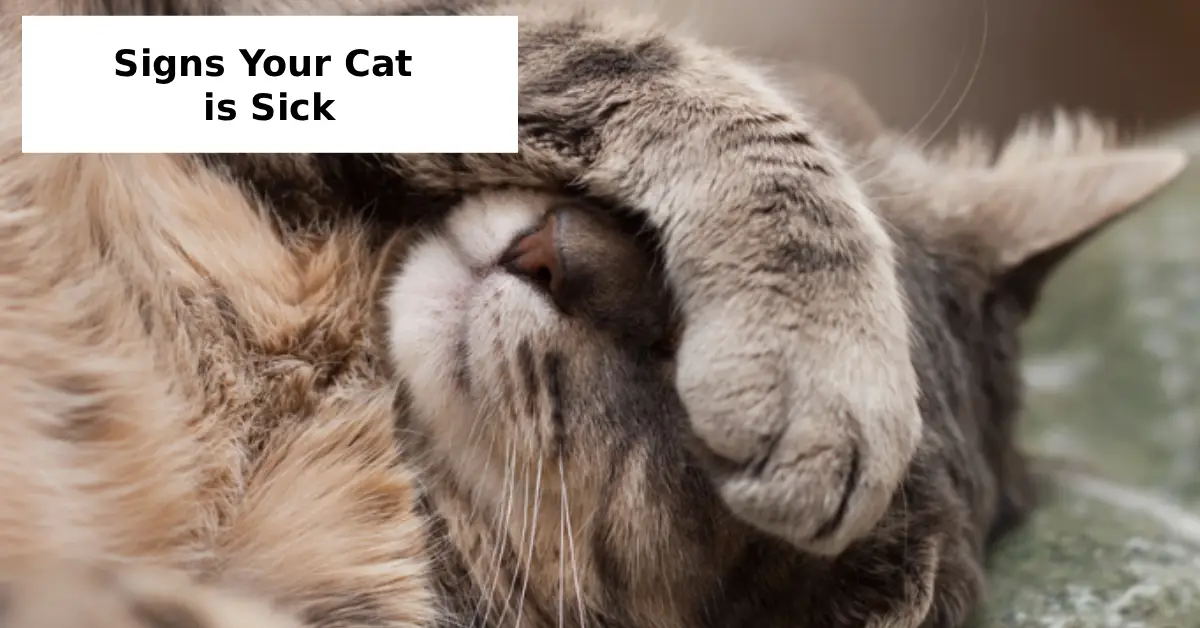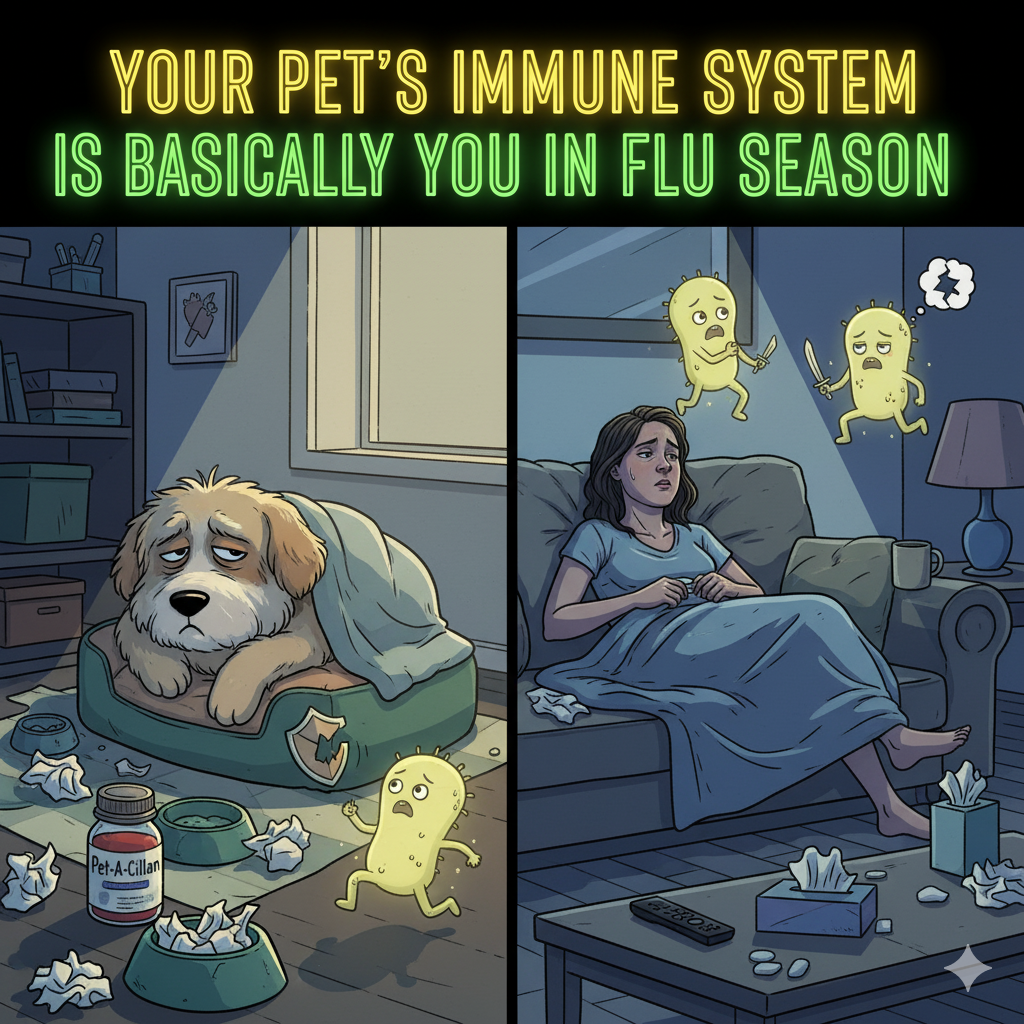Cats are mysterious, independent, and often excellent at hiding discomfort. Unlike dogs, they rarely show obvious distress until an illness has progressed. For pet owners, especially new cat parents or adopters, knowing the early Signs Your Cat is Sick can make the difference between timely treatment and serious health issues.
In this comprehensive guide, we’ll explore how to identify cat health warning signs, understand feline illness symptoms, and recognize when to take your cat to the vet. Whether you’re a lifelong cat enthusiast or someone newly navigating feline care, this article provides expert-backed insights for maintaining your cat’s well-being.
Why Cats Hide Their Illness
Cats are both predators and prey in the wild. Instinctively, they conceal weakness to avoid appearing vulnerable. This evolutionary trait means subtle illness cues can easily be overlooked. Recognizing subtle signs sick cat behaviors early is essential for keeping your companion safe.
Veterinarians emphasize that early intervention leads to better treatment outcomes, lower costs, and improved quality of life for your pet.
Key Signs Your Cat is Sick
Let’s break down the most common Signs Your Cat is Sick that every cat parent should monitor.
1. Cat Appetite Changes
A sudden change in eating habits is one of the clearest Signs Your Cat is Sick. Both refusal to eat and excessive hunger may signal issues.
- Loss of appetite: May indicate dental disease, infections, or internal organ problems.
- Increased appetite: Could suggest thyroid imbalance or diabetes.
If you notice cat appetite changes vet consultation is strongly recommended.
2. Unexplained Weight Changes
Weight gain or loss without changes in diet is a red flag. A gradual decrease may indicate feline illness symptoms such as kidney disease, while rapid gain can point to fluid buildup or metabolic conditions.
3. Cat Vomiting or Diarrhea
Occasional hairball vomiting is normal, but frequent episodes are warning signs. Persistent diarrhea or vomiting blood is a serious cat emergency vet signs scenario. If you observe cat vomiting vet advice should be sought immediately.
4. Lethargy or Low Energy
Is your cat sleeping more than usual or avoiding playtime? A lethargic cat vet advice is simple: don’t ignore it. Lethargy can result from infections, anemia, or pain.
5. Cat Behavior Changes
Unexplained mood swings, aggression, or withdrawal are concerning. Cat behavior changes illness may include:
- Avoiding family members
- Hiding in unusual places
- Sudden clinginess
These behavioral shifts can be among the most subtle Signs Your Cat is Sick.
6. Respiratory Distress
Wheezing, coughing, or labored breathing requires immediate medical attention. Respiratory diseases progress quickly, and early detection improves treatment chances.
7. Grooming Changes
Cats are usually meticulous groomers. Poor coat quality, greasy fur, or bald patches can be signs of pain, arthritis, or skin conditions. Excessive grooming may also indicate stress or allergies.
8. Litter Box Habits
Changes in urination or defecation frequency are important clues. Difficulty urinating, blood in urine, or straining are urgent vet visit cat symptoms that could point to urinary blockages—a life-threatening emergency, especially in male cats.
9. Unusual Sounds or Vocalizations
Increased crying, meowing, or yowling can signal pain or discomfort. Elderly cats may also show vocalization changes due to cognitive decline.
10. Physical Symptoms to Watch For
Some physical Signs Your Cat is Sick include:
- Runny eyes or nose
- Swollen lymph nodes
- Visible lumps or bumps
- Pale gums
- Difficulty jumping or moving
When to Take Your Cat to the Vet
Knowing when to take cat to vet is just as important as spotting symptoms. Here are clear guidelines:
- Immediate Emergency Vet Visit: Breathing difficulties, seizures, inability to urinate, trauma, or suspected poisoning.
- Within 24 Hours: Persistent vomiting, diarrhea, refusal to eat, or sudden weight changes.
- Routine Appointment: Subtle behavioral changes, coat issues, or gradual decline in activity.
For readers concerned about emergency symptoms, acting fast can save lives.
Cat Emergency Vet Signs: Don’t Wait
Some conditions can’t wait for regular appointments. Cat emergency vet signs include:
- Gasping for breath
- Collapsing
- Continuous bleeding
- Severe injury or fracture
If you see these, rush to the nearest clinic—don’t delay.
Subtle Signs Sick Cat Owners Often Miss
Not all warning signals are obvious. Subtle signs may include:
- Avoiding favorite sleeping spots
- Staring at walls or seeming disoriented
- Drinking more water than usual
- Over-grooming one spot repeatedly
These subtle signs sick cat behaviors deserve attention.
Preventive Cat Health Care
Preventive care reduces risks and helps spot illness early:
- Annual vet visits: Even indoor cats benefit from regular checkups.
- Vaccinations: Protect against preventable diseases.
- Dental care: Oral issues often cause systemic illness.
- Balanced diet: Maintains healthy weight and energy levels.
By staying proactive, cat enthusiasts and caretakers ensure longer, healthier feline lives.
Helping New Cat Owners Recognize Issues
For new cat owners or adopters, distinguishing between normal quirks and illness signs can be tricky. Key tips:
- Learn your cat’s baseline behavior.
- Track litter box use, eating habits, and playtime.
- Keep a health journal.
This awareness makes it easier to spot Signs Your Cat is Sick early.
Role of Environment and Lifestyle
For individuals in U.S. suburban or urban areas, environmental risks may vary. Outdoor cats face higher risks of parasites, injuries, and infections, while indoor cats may suffer from obesity or stress if not mentally stimulated.
Building a Relationship With Your Vet
Trust between pet owners (cat parents) and veterinarians is crucial. Don’t wait until emergencies to establish a vet relationship. Schedule wellness checks, ask questions, and ensure your cat is comfortable with clinic visits.
A strong partnership helps detect feline illness symptoms before they escalate.
FAQs: Signs Your Cat is Sick
Q1: How do I know if my cat needs immediate medical attention?
If your cat has difficulty breathing, seizures, or can’t urinate, treat it as an emergency.
Q2: Should I worry if my cat skips one meal?
Occasionally skipping a meal isn’t unusual, but refusal to eat for over 24 hours requires a vet.
Q3: My cat is vomiting hairballs daily. Is that normal?
No. Frequent vomiting may signal gastrointestinal illness—contact your vet for evaluation.
Q4: Can cats fake illness?
Cats don’t fake symptoms. If you observe changes, assume they’re real and seek guidance.
Conclusion: Trust Your Instincts
As a cat parent, your instincts are powerful. If something feels off, don’t ignore it. Understanding Signs Your Cat is Sick equips you to act quickly, protect your pet’s well-being, and strengthen the bond you share.
Early detection, timely vet visits, and preventive care ensure your furry companion enjoys a long, healthy, and happy life.





